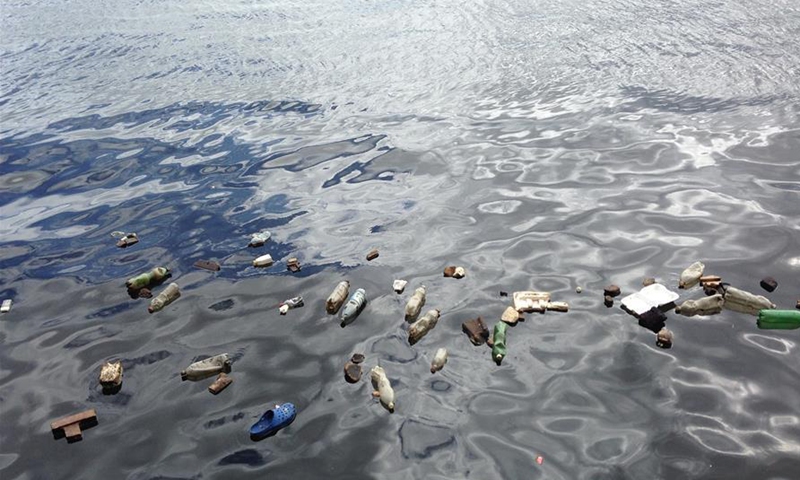About 14 million tonnes of microplastics on ocean floor: Australian study

Photo provided by the Commonwealth Scientific and Industrial Research Organisation (CSIRO) on Oct. 7, 2020 shows the floating marine debris. Australia's national science agency has found that there are about 14 million tonnes of small plastic pieces on the ocean floor. The CSIRO on Tuesday published a world-first global estimate for the extent of microplastic pollution in the deep ocean. (CSIRO/Handout via Xinhua)
Australia's national science agency has found that there are about 14 million tonnes of small plastic pieces on the ocean floor.
The Commonwealth Scientific and Industrial Research Organisation (CSIRO) on Tuesday published a world-first global estimate for the extent of microplastic pollution in the deep ocean.
By analyzing samples collected by a robotic submarine from remote sites off Australia's southern coast, they found that the ocean floor is twice as polluted as the surface.
The amount of microplastics detected was 25 times higher than previous deep-sea studies.
The researchers extrapolated the data from their findings and from research around the world to estimate that as much as about 14 million tonnes of microplastics are on the ocean floor globally.
"Plastic pollution that ends up in the ocean deteriorates and breaks down, ending up as microplastics," Justine Barrett, lead author of the study from CSIRO's Oceans and Atmosphere, said in a media release.
"Our research provides the first global estimate of how much microplastic there is on the seafloor.
"Even the deep ocean is susceptible to the plastic pollution problem.
"The results show microplastics are indeed sinking to the ocean floor."
Co-author Denise Hardesty, a CSIRO principal research scientist, said that plastic pollution of the world's oceans was an internationally recognized environmental issue, with the results indicating the urgent need to generate effective plastic pollution solutions.
"This will help to inform waste management strategies and create behavioural change and opportunities to stop plastic and other rubbish entering our environment," Hardesty said.
"We can all help to reduce plastic ending up in our oceans by avoiding single-use plastics, supporting Australian recycling and waste industries, and disposing of our rubbish thoughtfully so it doesn't end up in our environment."
